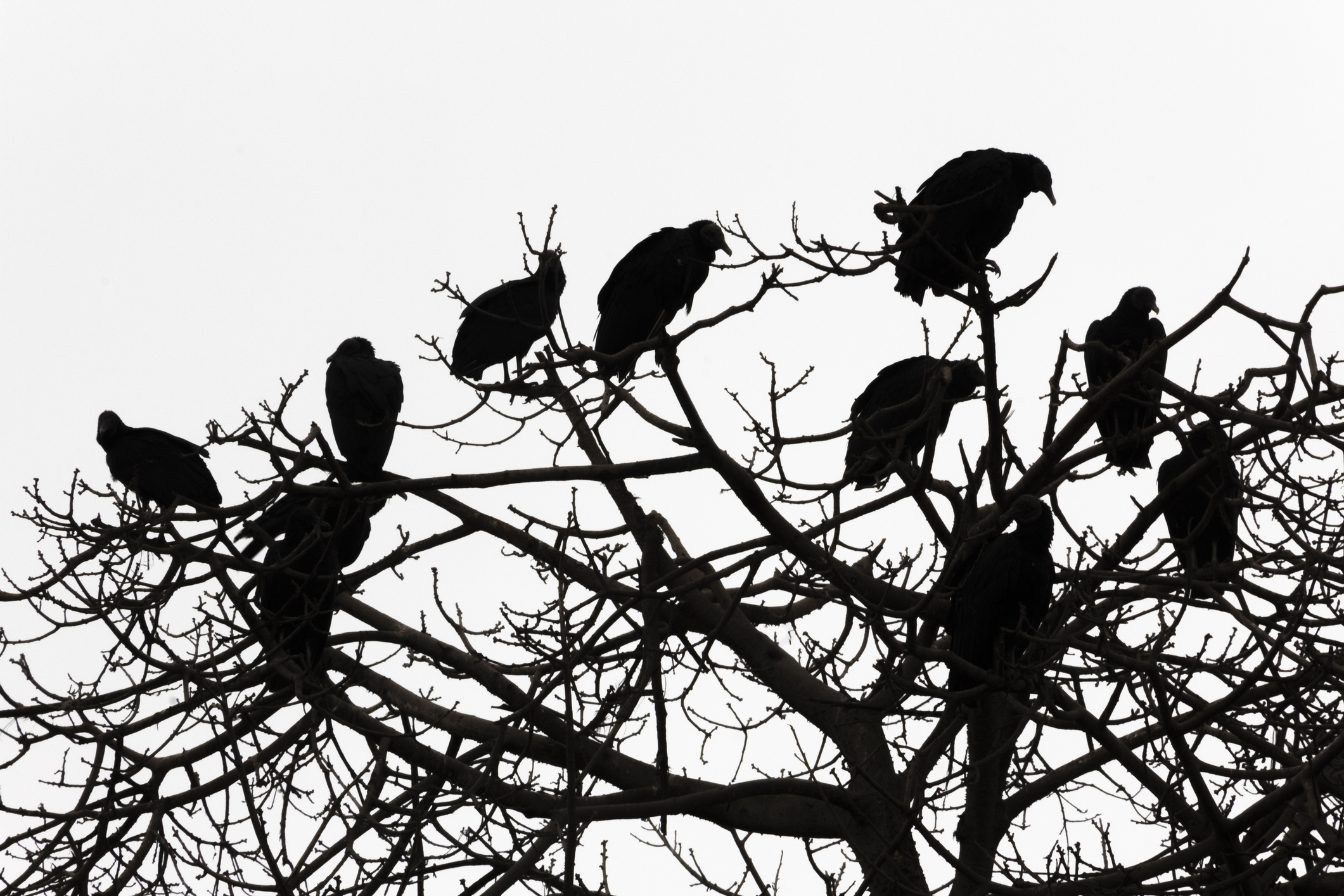Spooky Disclosures: Frightening Real-Life Questions from Our Legal Hotline
October 22, 2019

All REALTORS® are familiar with the run-of-the-mill disclosures: lead-based paint, radon, you know the drill… But what needs to be disclosed when it comes to grave sites or daunting vultures?! In keeping with the spirit of this spooky time of year, we interviewed our legal team to explore the eeriest disclosure questions they’ve received through the legal hotline. Here are their top three hair-raising questions (and answers!).
1) “A large flock of vultures is continually roosting in a tree on a property I’m selling. They’re out scavenging during the day when buyers are viewing the home, but at night, they always return! What do I need to do about disclosing this?”
There is no image less likely to add curb appeal than that of circling vultures! In this case, our legal team explained that if it’s a property with a small yard and very few trees, it’s a different issue than if the property has several acres of land. If the yard is small, the REALTOR® would need to disclose this fact, as it might impact a reasonable buyer’s decision to purchase this property. If the yard is expansive, however, a buyer would have to assume that wildlife will be coming and going.
2) “I’m selling a property, and the former owner, who died, is buried on the property alongside her favorite horse. Am I required to disclose this to potential buyers?”
Though cemeteries are not exactly selling points, our legal team recommends disclosing this fact. In Virginia, local ordinances lay out specific requirements for the burial of a body on private property. While many rural regions allow this practice (so long as it adheres to zoning requirements), it is less likely to be allowed on smaller properties, and a failure to disclose could lead to major issues down the line.
3) “A resident passed away in one of my condo units, and now there is an odor we’re having trouble removing. Do I need to disclose this death to potential buyers?”
In this scenario, some time had passed before the body was discovered, and despite the owner’s best efforts to professionally clean and remove all traces (as required by law), there was an unpleasant odor that would not subside, which could have been linked to the body. In Virginia, you are only required to disclose “material adverse facts pertaining to the physical condition of the property.” In this case, because the odor did not affect the physical structure of the property, the owner would need to disclose that there was a re-occurring smell with an unknown odor source, but not the death itself. (This is in accordance with Code of Virginia § 55.1-713.)
You might also like…
“Can a real estate licensee sell just a business without any land or building to go with it?”
By Sean Olk - September 17, 2024
*Please note: Any questions regarding Legal Hotline Spotlights should be submitted via the Virginia REALTORS® Legal Hotline. Our attorneys are unable to respond to questions through our comments section. Q:… Read More
“We believe a tenant is engaging in behavior that is making the property unsafe. How can we remedy the situation?”
By Jon Haley - September 12, 2024
*Please note: Any questions regarding Legal Hotline Spotlights should be submitted via the Virginia REALTORS® Legal Hotline. Our attorneys are unable to respond to questions through our comments section. Q:… Read More
Buyer Broker Agreement: When Do I Need One?
By Santiago Montalvo - September 6, 2024
Let’s begin with when you do NOT need one. You sign a listing agreement with a now seller and someone calls you and asks you to show that… Read More